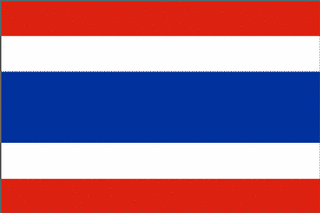The Russian Gas monopoly Gazprom intends to take action in order to force The Ukraine to pay for gas and stop the country from exporting it to Europe.
Published:
7 July 2000 y., Friday
Russian deputy Prime Minister Viktor Khristenko has reported that gas deals between the two CIS members are to be radically revised and a new payment procedure is to be introduced soon. By October 1st this year, the Russian government will have prepared a set of documents regulating gas transactions between the two states. Judging from the published excerpts from those documents, Russia will no longer tolerate The Ukraine’s non-payment and gas theft.
Firstly, to stop gas deliveries through The Ukraine would mean loosing lucrative contracts with Germany. Secondly, Kiev has cunningly managed to use Gazprom’s and the Russian authorities’ interests to suit its own ends, by promising the Kremlin that The Ukraine could delay its bid to enter NATO. The Russian authorities willingly bought these promises.
Politics aside, there were also economic reasons for Russia’s lenience towards The Ukraine. Gazprom has always acted as a private legal entity, although the Russian government holds a 41% stake in the gas giant. However, Gazprom continuously delayed tax payments, omitted dividends, and state representatives were given a disproportionately low share of the seats on Gazprom’s board of directors.
The government therefore did not take great pains to defend Gazprom’s interests.
Russia also insists that The Ukraine should stop illicit gas deliveries to Europe. The problem is that The Ukraine purchases Russian gas on favorable terms, regularly delays payments to Gazprom and then resells gas at high European prices, thus disrupting the stability of European gas supplies.
Šaltinis:
Internet
Copying, publishing, announcing any information from the News.lt portal without written permission of News.lt editorial office is prohibited.
The most popular articles
 In January 2009, the EBRD commissioned two Italian consultants to study Turkey's sustainable energy market in preparation for future investments.
more »
In January 2009, the EBRD commissioned two Italian consultants to study Turkey's sustainable energy market in preparation for future investments.
more »
 Next week a delegation of more than 50 Chinese businessmen, accompanying the Chinese Vice-Premier Hui Liangyu, are arriving to Lithuania.
more »
Next week a delegation of more than 50 Chinese businessmen, accompanying the Chinese Vice-Premier Hui Liangyu, are arriving to Lithuania.
more »
 The German developer “ECE” together with Lithuanian partners opened a new shopping and entertainment centre Ozas Gallery in Vilnius.
more »
The German developer “ECE” together with Lithuanian partners opened a new shopping and entertainment centre Ozas Gallery in Vilnius.
more »
 As it embarked on an ambitious stimulus spending, Thailand turned to the World Bank for advice on how to fast track the spending coupled with proper management controls to keep programs on the rails.
more »
As it embarked on an ambitious stimulus spending, Thailand turned to the World Bank for advice on how to fast track the spending coupled with proper management controls to keep programs on the rails.
more »
 Peter Reiniger Business Group Director for Central Europe and the Western Balkans from the European Bank for Reconstruction and Development visited Latvia to sign subordinated loan agreement with Parex banka.
more »
Peter Reiniger Business Group Director for Central Europe and the Western Balkans from the European Bank for Reconstruction and Development visited Latvia to sign subordinated loan agreement with Parex banka.
more »
 On Monday AB DnB NORD Bankas started placement of a 13-month fixed-rate Lithuanian government bonds. It is the first time when Lithuanian sovereign USD denominated securities will be available on Lithuania’s retail market.
more »
On Monday AB DnB NORD Bankas started placement of a 13-month fixed-rate Lithuanian government bonds. It is the first time when Lithuanian sovereign USD denominated securities will be available on Lithuania’s retail market.
more »
 The Swedish business daily Dagens Industry published an interview with Andrius Kubilius, the Prime Minister of Lithuania, to Bloomberg News.
more »
The Swedish business daily Dagens Industry published an interview with Andrius Kubilius, the Prime Minister of Lithuania, to Bloomberg News.
more »
 The economic crisis still has a firm grip on large parts of the world. But Sweden’s Minister for Trade Ewa Björling can see bright spots.
more »
The economic crisis still has a firm grip on large parts of the world. But Sweden’s Minister for Trade Ewa Björling can see bright spots.
more »
 The European Bank for Reconstruction and Development and KfW Entwicklungsbank (The German development bank) are providing a financing programme worth up to €28.9 million to MegaBank - one of the strongest regional banks in the eastern Ukraine.
more »
The European Bank for Reconstruction and Development and KfW Entwicklungsbank (The German development bank) are providing a financing programme worth up to €28.9 million to MegaBank - one of the strongest regional banks in the eastern Ukraine.
more »
 A settlement in an international tax dispute that strained U.S. ties with Switzerland.
more »
A settlement in an international tax dispute that strained U.S. ties with Switzerland.
more »